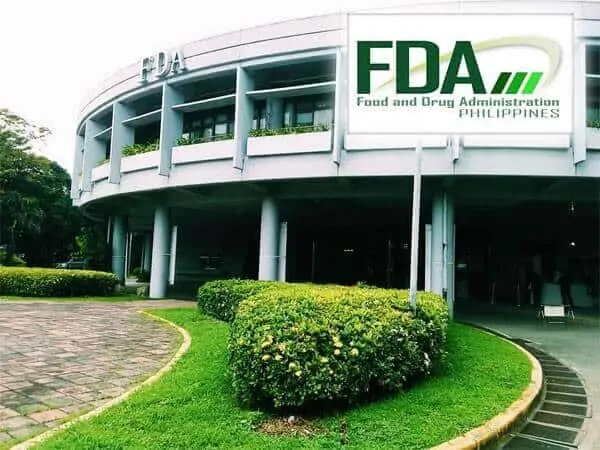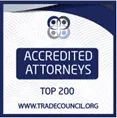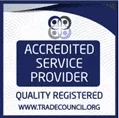What is a License to Operate (“LTO”)?
A License to Operate or LTO is a license which must be secured in order to operate or establish an establishment prior to engaging in the manufacture, importation, exportation, sale, offer for sale, distribution, transfer, and where applicable the use, testing, promotion, advertisement, and/or sponsorship of food, drugs, cosmetics, health products, and other medical products and devices.
Thus, the rule of thumb is, if an establishment is under the regulatory control of the Food and Drug Administration (FDA), a license to operate will be required by the FDA.
Where do you secure a License to Operate (“LTO”)?
The Food and Drug Administration (FDA), formerly known as Bureau of Food and Drugs (BFAD) under the Department of Health (DOH), is the agency of the government which handles the registration of processed foods, drugs, medical devices, in vitro diagnostic reagents, cosmetics, and household hazardous substance products.
As such, establishments involved in the manufacture, importation, sale, offering for sale, exportation, distribution, transfer, promotion, advertisement, and/or sponsorship of any activity that involves health products must secure a License to Operate from the FDA.
Health products include food, drugs, cosmetics, devices, biologicals, vaccines, in-vitro diagnostic reagents and household/urban hazardous substances and/or a combination of and/or a derivative thereof.
The Central Office of the FDA is located at Civic Drive, Filinvest Corporate City, Alabang, Muntinlupa City, Philippines.
FDA is mandated under the law to regulate establishments engaged in health products to ensure consumer safety, welfare protection, and fair-trade practice. In order to improve FDA’s effectiveness in carrying out its mandate, there is a need to harmonize, unify and streamline its processes and licensing requirements. This will help ensure the availability and accessibility of quality and safe health products in the market.
What kind of LTO is required?
If you want to operate a business involving food, the LTO that you will secure before the FDA, particularly Center for Food Regulation and Research, is a License to Operate as a Food Manufacturer, Importer, Or Distributor. Under Republic Act No. 9711, food means any processed substance which is intended for human consumption and includes drink for man, beverages, chewing gum and any substances which have been used as an ingredient in the manufacture, preparation or treatment of food.
If you are operating an establishment that deals with the manufacture, distribution or importation of cosmetics, the LTO that you will secure before the FDA, specifically, Center for Cosmetics Regulation and Research, is a License to Operate as a Cosmetics Manufacturer, Importer, Or Distributor. Under Republic Act No. 9711, cosmetics means any substance or preparation intended to be placed in contact with the various external parts of the human body or with the teeth and the mucous membranes of the oral cavity, with a view exclusively or mainly to cleaning them, perfuming them, changing their appearance and/or correcting body odor, and/or protecting the body or keeping them in good condition.
If you want to operate a business involving medical device, the LTO that you will secure before the FDA (Center for Device Regulation, Radiation Health and Research) is a License to Operate as a Medical Device Manufacturer, Importer, Or Distributor. Under Republic Act No. 9711, medical device means any instrument, apparatus, implement, machine, appliance, implant, in-vitro reagent or calibrator, software, material, or other similar or related article intended by the manufacturer to be used alone, or in combination, for human beings for one or more of the specific purpose(s) of: diagnosis, prevention,, monitoring, treatment or alleviation of disease; diagnosis, monitoring, treatment, alleviation of, or compensation for an injury; investigation, replacement, modification, or support of the anatomy or of a physiological process; supporting or sustaining life; preventing infection; control of conception; disinfection of medical devices; and providing information for medical or diagnostic purposes by means of in-vitro examination of specimens derived from the human body. This device does not achieve its primary intended action in or on the human body by pharmacological, immunological, or metabolic means but which may be assisted in its intended function by such means.
If you want to operate a business involving drugs, the LTO that you will secure before the FDA (Center for Drug Regulation and Research) is a License to Operate as a Drug Manufacturer, Importer, Or Distributor.
Under Republic Act No. 9711, the term drug means:
(1) articles recognized in official pharmacopeias and formularies, including official homeopathic pharmacopeias, or any documentary supplement to any of them, which are recognized and adopted by the FDA;
(2) articles intended for use in the diagnosis, cure, mitigation, treatment, or prevention of disease in man or other animals;
(3) articles (other than food) intended to affect the structure of any function of the body of humans or animals; or
(4) articles intended for use as a component of any articles specified in clauses (1), (2), or (3) but do not include devices or their components, parts or accessories.
For all LTOs, the term distributor/importer/exporter includes any establishment that imports or exports raw materials, active ingredients and/or finished products for its own use or for wholesale distribution to other establishments or outlets. If the distributor/importer/exporter sells to the general public, it shall be considered a retailer. Manufacturers, traders and distributors (importers, exporters, and wholesalers) of cosmetics, as defined above, must secure a License to Operate as a Medical Device Manufacturer, Importer, Or Distributor.
What establishments are required to secure LTO as a Food/ Drug/Cosmetic/Medical Device Manufacturer, Importer, Or Distributor?
In general, Administrative Order No. 2016-003, or otherwise known as the Guidelines on the Unified Licensing Requirements and Procedure of the Food and Drug Administration, covers the following establishments, whether public or private:
- Manufacturers, traders and distributors (importers, exporters, and wholesalers) of processed foods, drugs (including vaccine, biologics, veterinary drugs and products), cosmetics, medical devices, in-vitro diagnostic device and reagents, household/urban pesticides, toys, and child care articles; and
- Drugstores/pharmacies/boticas (including hospital pharmacies and institutional pharmacies), and retail outlets for non-prescription drugs (RONPD).
Only resident Filipino citizens, resident aliens and corporations with majority of the capital of which is owned by Filipino citizens, are allowed to secure LTO.
What establishments or persons are not required to secure LTO as a Food/ Drug/Cosmetic/Medical Device Manufacturer, Importer, Or Distributor?
The following establishments or persons are not currently required to secure LTO prior to commencement of their business activity, and hence, not covered by Order 2016-003:
- Retailers or retail outlets of food, cosmetics, medical devices, in-vitro diagnostic devices and reagents and household/urban hazardous substances, toys and child care articles;
- Operators or applicators of household or urban pesticides;
- Organizers of national and international trade fairs and exhibits;
- Organizations or persons engaged in donations, medical missions and other humanitarian activities; and
- Importers/Distributors of collector’s items.
What establishments are governed by separate rules and regulations, as regards LTO?
- Sponsors and contract research organizations (CROs) shall comply with Administrative Order No. 2014-0034 and FDA Circular No. 2015-003;
- Facilities using medical and non-medical radiation devices;
- Salt manufacturers and distributors governed by RA 8172 (ASIN law); and
- Bottled water manufacturer and distributor shall comply with Administrative Order No. 18-A s 1993.
About Nicolas and De Vega Law Offices
If you need assistance in registration with the Food and Drug Administration, applications for Licenses to Operate, drug, cosmetic, medical device or food registration, registration of cosmetics, food supplements, licenses to operate or other applications with the Food and Drug Registration, or have issues in corporate law, commercial law, corporate or commercial litigation, or civil or other criminal law-related issues, we can help you. Nicolas and de Vega Law Offices is a full-service law firm in the Philippines. You may visit us at the 16th Flr., Suite 1607 AIC Burgundy Empire Tower, ADB Ave., Ortigas Center, 1605 Pasig City, Metro Manila, Philippines. You may also call us at +632 84706126, +632 84706130, +632 84016392 or e-mail us at [email protected]. Visit our website https://ndvlaw.com.









